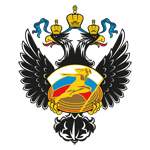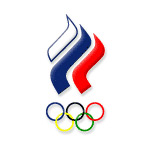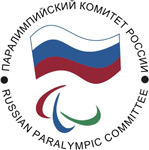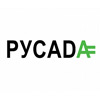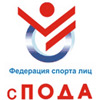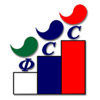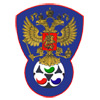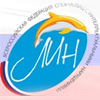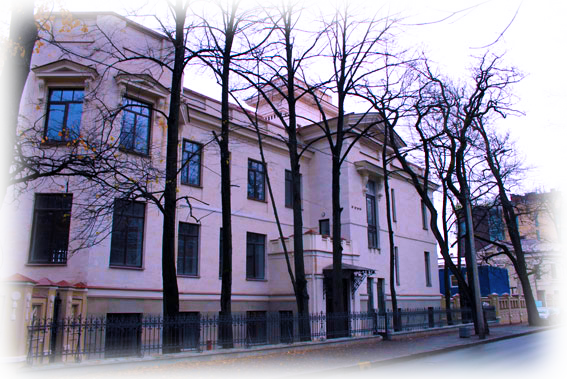Tel.: (812) 600-41-16 ext. 106
e-mail: afk@spbniifk.ru
The head of the division is a senior researcher PhD Tatyana V. Krasnoperova
The main directions of scientific researches of the RAFKiSI division.
1. Forecasting and modeling of training and competitive activity in Paralympic sports taking into account the complex assessment of functional capabilities of athletes.
2. Research of the state of neuromuscular apparatus and adaptive capabilities of the organism.
3. Study of the static component of the coordination structure of motor activity.
4. Conducting pedagogical and physiological research on all main types of adaptive physical culture (adaptive physical education, adaptive sport, adaptive motor recreation, physical rehabilitation).
5. Biomechanical analysis of competitive exercise technique.
6. Bioimpedance analysis of body composition.
7. Participation in scientific and methodological support of the Russian Paralympic national teams with the development and implementation of modern means of functional state control in the training process.
Topics of research work:
Scientific substantiation of theoretical and normative foundations of adaptive sport (2009-2011).
Management of physical culture and sports process in adaptive physical culture taking into account sensory, motor and mental impairments of the contingent of students (2012-2014).
Development of scientifically based approaches to the formation of adaptive physical culture programs taking into account the sensitive periods of development of the coordination structure of motor activity in persons with disabilities (sensory and mental disorders) (2015-2017).
Improvement of training process in Paralympic speed and strength disciplines of athletics on the basis of using non-invasive methods of functional fitness assessment (2018-2020).
Research of the influence of functional features on the technique of performance of competitive exercises in Paralympic athletics (2021-2023).
Research and scientific substantiation of the possibilities of using the functional reserves of the neuromuscular apparatus of high-class Paralympic athletes in the annual cycle of sports training (2024-2026).
The Division conducts its research on all major types of adaptive physical education:
1. Adaptive physical education
This direction implies scientific substantiation of the content of adaptive physical education of educational institutions of I-VIII types; pupils and students of special medical groups of schools, colleges (technical schools) and universities.
2. Adaptive sports
This type of adaptive physical culture is intensively investigated in recent years and involves scientific substantiation of a wide range of problems: the content of the system of sports training, training management, support by restorative means and methods of disabled athletes in the course of training and competitive activities.
3. Adaptive motor recreation.
Here the most effective ways of using physical exercises for the organization of active recreation of disabled people and persons with deviations in the state of health are studied.
4. Physical rehabilitation
In this type of adaptive physical culture the emphasis is placed on the search for systems of health improvement for persons with disabilities, focusing, first of all, on technologies that combine the physical (bodily) and mental (spiritual) beginnings of a person and are oriented mainly on the independent activity of the participants.
PARTICIPATION OF THE DIVISION IN THE WORK OF COMPLEX SCIENTIFIC GROUPS
The Division of development of adaptive physical culture and sports of disabled people takes an active part in scientific and methodological support of the Russian Paralympic national teams in summer sports taking into account an integrated approach to training athletes and with the introduction of modern means and methods of training and control in the training process. On the basis of pedagogical, physiological, biomechanical examinations the coaching staff receives analytical information, which provides invaluable assistance in accounting, planning and analysis of training and competition loads. At present the sector has modern diagnostic equipment, which allows to carry out qualitative complex diagnostics of functional state and fitness of highly qualified Paralympic athletes, promptly process and present the obtained information.
Examinations of Paralympic athletes are carried out both on the basis of SPbNIIFK, and in the conditions of training camps and competitions, which allows to obtain complex information about the state of physiological systems of the body in standard conditions for the athlete. On the basis of examination results coaches receive objective information about physical fitness, functional state and reserve capabilities of athletes' organism. The obtained data allow to adjust training and recovery processes of Paralympic athletes to increase their motor and functional potential in the shortest possible time. One of the most important tasks in the work with Paralympic teams is the timely determination of the functional state and changes in the musculoskeletal apparatus of a disabled athlete, making corrections in the training process and rehabilitation measures.
The division employs specialists of different scientific directions: pedagogues, physiologists, biomechanists. All employees have extensive practical experience in the field of adaptive physical culture and adaptive sports, which allows to provide a comprehensive approach to solving problems associated with the development and justification of innovative technologies of scientific and methodological support of sports activities of athletes with disabilities.
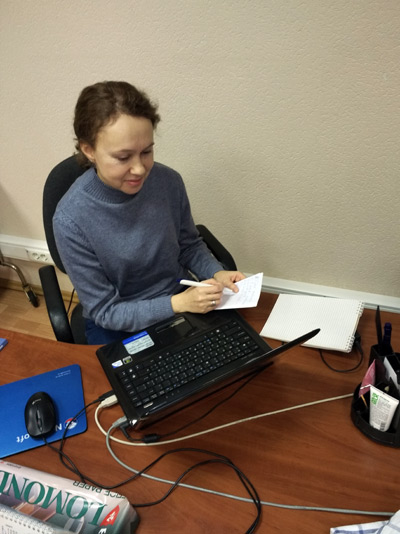
- Head of the sector - Krasnoperova Tatiana Vitalievna Ph.D. in Biology
- Employees of the sector:
Lukmanova Natalia Borisovna Ph.D. in Biology, Associate Professor, Senior Researcher
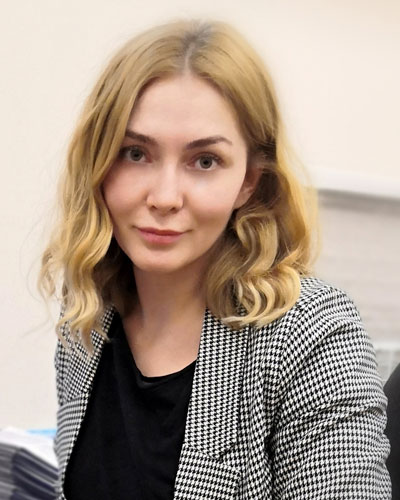
Lebedeva Anna Leonidovna Ph.D. in Psychology, Senior Researcher
Bystrova Margarita Viktorovna junior researcher.
Main publications:
1. Krasnoperova T.V., Bystrova M.V., Lukmanova N.B. Statokinetic stability of highly skilled track and field sprinters with intellectual disabilities // Adaptive Physical Culture. - 2024. - № 1 (97). - С. 34-35.
2. Dobrynin P.K., Krasnoperova T.V., Bystrova M.V. Application of electromyography in the practice of adaptive sport // Adaptive Physical Culture. - 2024. - № 1 (97). - С. 57-58.
3. Krasnoperova, T.V.; Ageev, E.V. Visco-elastic properties of the lower limbs muscles in highly qualified athletes with intellectual disabilities, specializing in middle-distance running // Man. Sport. Medicine. - 2024. - Т. 24. № 1. - С. 121-127.
4. Krasnoperova T.V., Bystrova M.V. Statokinetic stability in athletes of different nosological groups // Scientific and Educational Foundations in Physical Culture and Sport. - 2024; № 14 (2). - С.36-43.
5. Krasnoperova T.V., Ageev E.V. Evaluation of visco-elastic properties of athletes' lower limbs using myotonpro technology // Culture physical and health. - 2024. - № 2(90). - С. 234-237.
6. Krasnoperova T.V., Bystrova M.V., Lukmanova N.B., Dobrynin P.K. The use of biofeedback in stabilization studies of persons with intellectual disabilities // Adaptive Physical Culture. - 2024. - Т. 98, № 2. - С. 41-43.
7. Lukmanova N.B., Bystrova M.V., Krasnoperova T.V., Kurov V.I. Improvement of the technique of sprinting distance running of highly qualified athletes of the sport LIN // Adaptive Physical Culture. - 2024. - Т. 99, № 3. - С. 45-46.
8. Krasnoperova T.V., Ageev E.V., Bystrova M.V. Kudinova O.P. Possibility of using myotonometry as an express method of research of motor asymmetry in athletes with visual impairment // Adaptive Physical Culture. - 2023. - № 1 (93). - С. 4-5.
9. Krasnoperova T.V., Gavrilova M.P. Bystrova M. V. Evaluation of visco-elastic properties of muscles in shot putters with visual impairment in conditions of competitive activity // Adaptive Physical Culture. - 2023. - № 2 (94). - С. 39-41.
10. Krasnoperova T.V., Gavrilova M.P., Bystrova M.V. State of visco-elastic properties of muscles in athletes with visual impairment in the competitive period // Theory and Practice of Physical Culture. - 2023. - № 9. - С. 81-83.
11. Krasnoperova T.V., Lukmanova N.B. Analysis of the neuromuscular apparatus indicators and kinematic characteristics of the running technique of athletes with intellectual disabilities // Theory and practice of physical culture. - 2023. - № 10. - С. 82-84.
12. Krasnoperova T.V., Ageev E.V. Baryabina V.Yu. Influence of competitive activity on visco-elastic properties of muscles of sprinters of sport LINE (track and field athletics) // Adaptive physical culture. - 2023. - № 3 (95). - С. 18-19.
13. Lukmanova N.B., Bystrova M.V., Krasnoperova T.V. Peculiarities of the sprinting technique of track and field athletes with intellectual disabilities // Adaptive Physical Culture. - 2023. - № 3 (95). - С. 22-23.
14. Kotelevskaya N.B., Krasnoperova T.V., Smirnov A.S., Preobrazhenskaya A.B. Influence of systematic exercises on the recovery of fine motor skills of hands in persons after cerebral circulatory disorder on the late terms of rehabilitation // Adaptive Physical Culture. - 2023. - № 3 (95). - С. 27-28.
15. Krasnoperova T.V., Ageev E.V., Baryabina V.Yu. Comparison of the stiffness of the calf muscle of the sprinters with limited health capabilities of the mass sports categories before the competition // Pedagogical-psychological and medical-biological problems of physical culture and sport. - 2023. - Vol. 18, No. 3. - С. 5-9.
16. Germanov, K.V.; Krasnoperova, T.V.; Germanova, A.A. Analysis of the computer vision application in sport // Scientific notes of the P.F.Lesgaft University. - 2023. - № 9 (222). - С. 100-106.
17. Krasnoperova T.V., Belyova A.N., Ivanova I.G. Technique of the athletic running at a distance of 100 meters and the state of the muscles of the lower extremities in athletes with intellectual disability // Adaptive Physical Culture. - 2022. - № 1 (89). - С. 42-46.
18. Krasnoperova T.V., Ivanova I.G., Smirnov A.S., Krasnoperov M.D. State of vegetative regulation and muscles of the lower extremities in athletes-light athletes with visual impairment // Scientific Notes of P.F.Lesgaft University. - 2022. - № 1 (203). - С.192-198.
19. Krasnoperova T.V., Belyova A.N., Baryabina V.Yu. Parameters of the track-and-field running for 800 meters and visco-elastic properties of muscles in athletes with intellectual disabilities // Adaptive Physical Culture. - 2022. - № 2 (90). - С. 19-23.
20. Krasnoperova T.V., Ivanova I.G., Ageev E.V., Krasnoperov M.D. Vegetative regulation of the heart rhythm in track and field athletes with visual impairment in the annual cycle at the stage of sports improvement // Scientific notes of the P.F.Lesgaft University. - 2022. - № 8 (211). - 150-156.
21. Smirnov A.S., Kotelevskaya N.B., Krasnoperova T.V. Experimental methodology of individualization of physical rehabilitation by means of AFK of persons after stroke // Adaptive Physical Culture. - 2022. - № 3 (91). - С. 17-19.
22. Zakharov G.G., Krasnoperova T.V., Kotelevskaya N.B. The state of the static component of the coordination structure of motor activity of double-athlon skiers at the training stage of athletic training // Scientific Notes of P.F. Lesgaft University -2021. - №4 (194). - С. 151-156
23. Krasnoperova T.V., Ivanova I.G., Galdikas A.S. Functional features of the neuromuscular apparatus in track and field athletes with visual impairment and intellectual disabilities // Adaptive Physical Culture - 2021. - № 2 (86). - С. 51-53
24. Krasnoperova T.V., Belyova A.N., Ivanova I.G. Research of biomechanical and neuromuscular characteristics of track and field athletes with visual impairment // Adaptive Physical Culture. - 2021. - № 3 (87). - С.17-19
25. Smirnov A.S., Krasnoperova T.V., Kotelevskaya N.B. Influence of AFK exercises on the adaptation potential of the circulatory system in persons after stroke on the late terms of recovery // Adaptive Physical Culture. - 2021. - № 4 (88). - С.6-8
26. Krasnoperova T.V., Kiseleva E.A. Influence of the training process on the body composition of Paralympic athletes with musculoskeletal system damage in different training periods // Adaptive Physical Culture, 2020, No. 1 (81) - P. 24-26.
27. Krasnoperova T.V., Kiseleva E.A. Features of the state of the neuromuscular apparatus in different nosological groups at the initial stage of training in Paralympic disciplines of athletics // Scientific notes of P.F. Lesgaft University. 2020. Т. 182. № 4. С. 240-244.
28. Smirnov A.S., Krasnoperova T.V., Kotelevskaya N.B Influence of systematic AFK exercises on the dynamics of muscle tone in stroke survivors at late recovery // Adaptive Physical Culture, 2020, No. 1 (81) - P. 20-21.
29. Krasnoperova T.V., Yudina E.I. Scientific and methodological proposals for the use of non-invasive techniques at the initial stage of sports training in athletes with intellectual disabilities // Adaptive Physical Culture, 2020, No. 2 (82) - P. 36-38. 36-38.
30. Smirnov A.S., Krasnoperova T.V., Kotelevskaya N.B. Influence of adaptive physical training on the dynamics of heart rate variability parameters in persons after stroke // Scientific Notes of P.F. Lesgaft University. - 2020. - № 7 (185). С. 354-360
31. Krasnoperova T.V., Kotelevskaya N.B., Abramova T.F. Physiological significance of the stabilometric study in complex-coordination sports // Theory and Practice of Physical Culture № 7 - P. 13-15.
32. Krasnoperova T.V., Pukhov D.N., Smirnov A.S., Kotelevskaya N.B. Influence of adaptive physical culture classes on the psychoemotional state of stroke survivors on the late terms of recovery // Adaptive Physical Culture. - 2020. - № 4 (84). - С. 38-39.
33. Krasnoperova T.V., Kotelevskaya N.B. Control over the functional state of athletes of different nosological groups at the initial stage of sports training // Scientific Notes of P.F. Lesgaft University. - 2020. - № 11 (189). С. 270-274.


